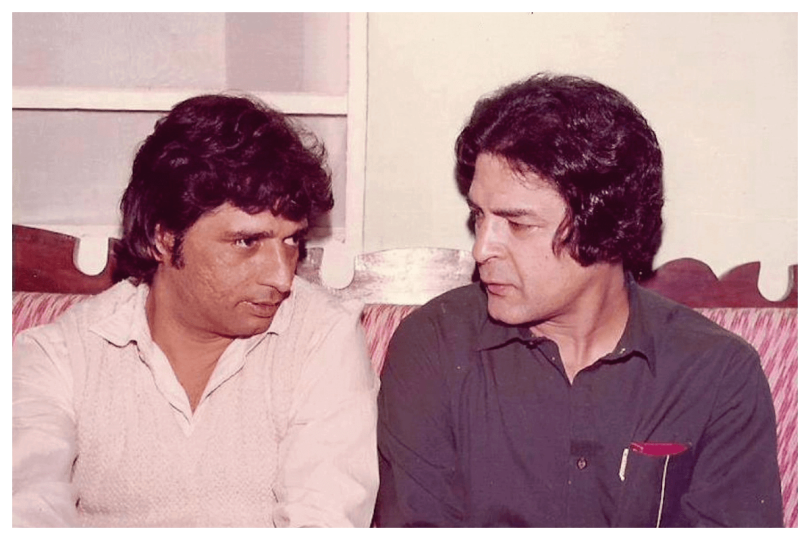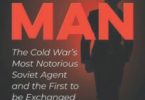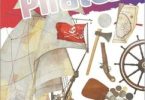There was no bigger star in Pakistan during the 1980s than Ismail Tara, who went on to become the face of the Saturday Night Live-inspired Fifty Fifty. He could play any character at the drop of a hat and that’s what made him the most successful component of the TV show that ran in two stints for five years. He could be believable as a Disco Chor, a Traffic Constable, a Qawwal, or even a fan of Punjabi films, and it was this diversity that helped him throughout his career, post-Fifty Fifty. Let’s take a trip down memory lane and analyze the recently departed Ismail Tara’s performance in different getups, and how he made a name for playing ethnic, comic, and epic characters during his prime.
As the Mimic
Long before Umar Sharif and Moin Akhtar became household names for mimicking renowned actors, it was Ismail Tara who began the trend on TV in Fifty Fifty. In one of its most famous skits, he played a talented youngster who was asked to mimic actors like Darpan, Waheed Murad, and Kamal Irani to name a few at an audition and was accepted by the director in the end, played by Ashraf Khan. It was the mimicry that was spot on and inspired others to add mimicry to their arsenal, for it was a talent that would have gone unnoticed had it not been for Ismail Tara.

As the Traffic Constable
What does the name Mustansar Hussain Tarar bring to mind when you hear it? If it takes you back to the Fifty Fifty skit, then you aren’t alone. In that skit, Ismail Tara plays a Traffic Constable who couldn’t write the name of Ashraf Khan’s character who claimed to be Mustansar Hussain Tarar. When he finally did manage to get the name right with the help of his son, he got stuck at the father’s name section and had to bribe the rider to forget the incident. His ‘Uri Uri’ to stop the traffic was so famous that people still talk in that language when sitting amongst friends.

As the Newscaster
And then there was the skit where a newscaster (played by Ismail Tara, of course) fell in love with an air hostess (Asma Abbas). It was the brilliance of Ismail Tara that made the skit popular and had social media been active in those days, it would certainly have gone viral. The way he starts and ends his sentences, the way he conducts himself in the presence of others and his manners reminded the viewers of the newscasters of those days, and maybe even today. Asma Abbas also did a great job as the air hostess, making the skit eternally loveable, across generations.

As the Pakistani Cowboy
In the 1980s, a cold drink commercial was quite popular in which a cowboy entered a salon in the middle of nowhere, demanded the product, and after quenching his thirst took one for the road. Ismail Tara played the Pakistani version of that cowboy who entered a restaurant, demanded tea, and after getting served, pulled a gun on the manager for hiding the sugar. The skit aired during the time when the country was going through a shortage of sugar, but the way this skit was executed made it extremely popular. He also repeated the same getup in another skit where two cowboys fight a duel for the pass of Neelam Ghar, which was hugely popular, especially in the 1980s.

As the Qawwal
Thanks to the reruns of Fifty Fifty in the 1990s, Ismail Tara’s take on Aziz Mian Qawwal remains popular even today, as do the many film songs they made fun of. Be it Mala’s Tera Naam Mera Naam song from Jaise Jantay Nahi or the classic Aaj Mujh Ko Kia Hua Ismail Tara’s rendition as well as the performance was impossible to ignore. He would either be seen moving his head from right to left, eating pan between the song, or even delivering a few lines in the traditional Aziz Mian style, depending on the nature of the song. If you still remember Petrol Ke Daam Sonay Ke Daam, then clearly you were mesmerized by Ismail Tara’s brilliance back in the day!

As The Disco Chor
Nothing done on the TV screen in Pakistan can match the magnificence of Ismail Tara’s dance on Michael Jackson’s Billie Jean where he first danced to the beat of the song to enter a poor man’s house, then searched the whole house for loot and on not finding anything, exited after donating a few rupees to the house owner. The way he danced made the viewers smile back then, and anyone who comes across the skit is unable to control his laughter. That’s not all, Ismail Tara’s dance steps on One Way Ticket were also quite popular and were recreated in Fifty Fifty as well as many other TV shows and films, including his own refreshed take in the end credits of Jawani Phir Nahi Ani some seven years back.
As Anyone Pakistani!
What made Ismail Tara the darling of entire Pakistan during the 1980s was his ability to play any person belonging to any ethnicity to perfection. If his Murad Khan in Murad Khan and Mary act was the quintessential Pathan, the guy who idolized Sultan Rahi was the perfect Punjabi munda and the same can be said of the Yattay Gattay guy who was visibly Bangali or could be anyone else. The buck doesn’t stop here as the Kia Keh Raha Hai Bhai Bihari Babu was as relatable as the Nahi Ray Haan Ray Waah Ray Makrani dude. He even played the immigrant Dada (Heeaan Se Huaan fame), the villainous KESC guy as well as the Customs Officer to perfection. During his lifetime he told this scribe that at one time, he was singled out at the airport by Customs Officers who wanted him to stop making fun of them because no one was giving them their daughters!







